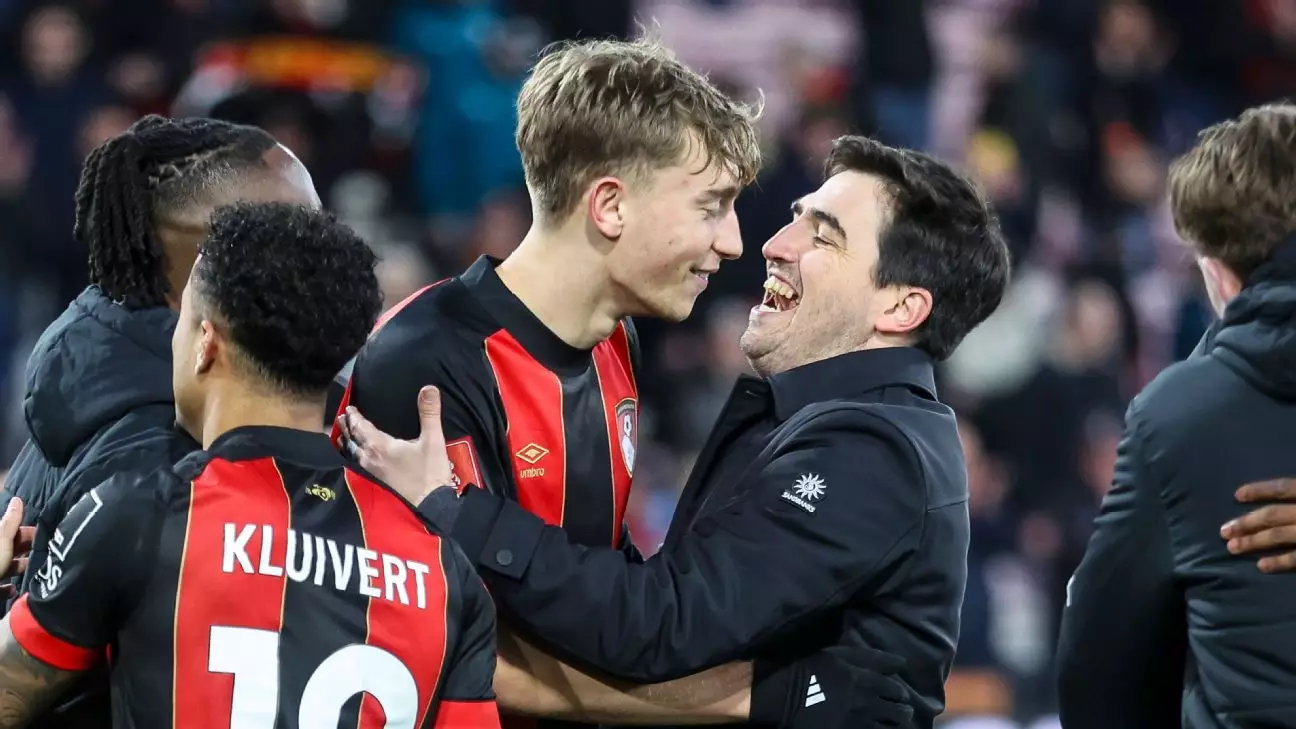The landscape of football has drastically changed in recent years. A profound shift toward uncovering and nurturing young talent has emerged, raising questions about how we recognize those players who have just begun to bloom in the intense pressures of the Premier League. The existing model for the PFA Young Player of the Year award veers from acknowledging raw, untouched talent by imposing age restrictions that simply don’t match today’s reality. With the current eligibility criteria capped at 21 years for the PFA award and 23 for the Premier League counterpart, this outdated framework fails to account for the early debuts and extensive experiences many players accumulate before reaching eligibility.
In essence, the spirit of awarding a “Young Player of the Year” is diluted when many players already possess years of exposure and high-stakes encounters by the time they qualify. This presents a compelling argument: it’s time to overhaul the award system entirely. The proposal is simple yet innovative—adopt a “Rookie of the Year” award, drawing inspiration from the NBA to honor players who are embarking on their full Premier League journeys. By redefining eligibility to players aged 19 or younger at the season’s start, football can truly celebrate fresh talent.
Identifying Hidden Gems
Within this newly conceived context, the landscape is ripe for discovering players who otherwise might go unnoticed under the traditional recognition schemes. A prime example is Myles Lewis-Skelly, who entered the season as a relatively established name yet exploded onto the scene. Transitioning from central midfielder to a left-back starter at Arsenal, Lewis-Skelly has established a foothold amid seasoned professionals, showcasing not only adaptability but also fierce competition. He stands as a testament to resilience, embodying the very essence of what the Rookie award should celebrate—pushing boundaries beyond pre-established comfort zones.
Looking at clubs like Bournemouth brings more names into focus. With smart transfer dealings like that of Huijsen, a promising talent acquired from Juventus, Bournemouth is redefining value in young players. This adaptable defender has emerged as a critical component of their backline, proving that with the right opportunities and coaching, young players can surprise seasoned professionals and reshape the narratives around their teams.
On the other hand, the case of Cole Palmer at Manchester City serves as another illustrative example. Captured early in his career and immersed in a squad filled with elite players, his gradual emergence does not negate his status as a rookie by this revised definition. Instead, it highlights a layered narrative of talent development intertwined with premier competition. He represents a bridge between raw talent and experienced execution—a player at the cusp of greatness.
Challenges and Opportunities at the Forefront
In contrast, several names within the league, like Kabir Mainoo of Manchester United and Rico Lewis from Manchester City, represent the complex challenges faced under the traditional awards structure. Despite demonstrating clear promise, they remain sidelined in discussions for accolades simply due to the interceding rule barriers regarding their respective career stages. This juxtaposition brings forth an urgent need for a broader perspective when evaluating young talent, embracing their journeys without arbitrary time restrictions.
The struggle of players like Emerson at Tottenham further emphasizes this notion. As veterans grapple with consistency, fresh blood must have space to shine without being prematurely categorized merely as successors. The Premier League should create ecosystems for these players to grow in, rather than punish them under outdated scrutiny—enabling them to leverage their youthful vigor against seasoned adversaries.
Moreover, Dibling at Southampton has caught attention through fearless play that defies the limitations imposed by his club’s circumstances, highlighting the enormous potential waiting to be tapped. The very essence of potenciating rookie status lies in the pressures and risks these players undertake, often independently lifting teams burdened by structure or history.
The Future is Vibrant
The shift toward a Rookie of the Year framework isn’t just a proposal; it’s a necessary evolution in recognizing and empowering players who shape the narrative of modern football. With starlets like Nwaneri and Bergvall emerging among their respective squads, the barriers to achieving recognition must no longer inhibit the growth and showcase of young talent.
As players grow younger and careers start earlier, validating their contributions should match these realities. Football should celebrate the emergent successors, granting them the platform to shine unshackled by traditional expectations. The establishment of a Rookie of the Year award could ultimately pave the way for the evolution of talent recognition—ushering in a vibrant future where every player, no matter their age, is free to express their skill and creativity on the grand stage of the Premier League.

